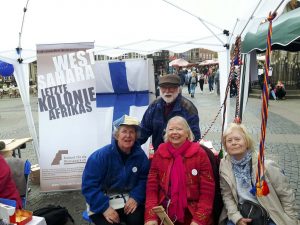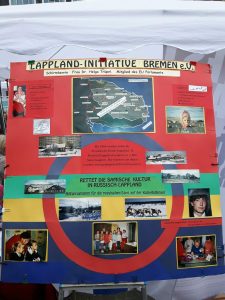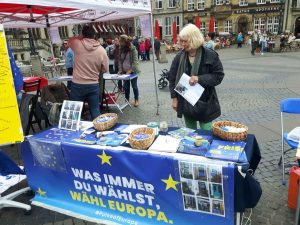Thoughts on retirement and retreat – Part Two: Blogging vs. engagement with social media
In my latest post I started to share my thoughts on my transition to retirement and the consequences for blogging. I made the point that for me going on retirement was coupled with retreat to my home country Finland. Thus, I had left behind the ‘battle grounds’ in project work, activities in research communities and engagement as a German-based European expatriate. So, in many respects I had closed some important chapters in my life, changed places and faced the challenge to find a new role as a blogger. Part of this process is to think about my engagement in (other) social media and the consequences for blogging. Below I share some points on my engagement in social media – notably Facebook.
Sharing news and views of prominent persons
In my previous post I wrote of my engagement as an interpreter between the Germans (among whom I had lived for a long time) and other Europeans. This was mainly connected to historical anniversaries. Gradually, I shifted these activities to Facebook. Instead of writing posts myself, I started sharing updates (often with video or audio) published by German TV or radio channels. These have been mainly in German language but I have prepared brief introductions in English. Also, I have shared updates that present speeches or comments of prominent persons on historical anniversaries or on current political and international developments. Here, I have delimited my role into drawing attention to such contributions. I have not wanted to assume the role of expert or journalist to give a full commentary. By sharing updates I have found my role – blogging would have required an extra effort to make my views transparent and to engage in debates.
Engagement with Finnish expatriate communities
In my previous post I also referred to an interest to give European colleagues insights into the history of Finland and into the process of becoming a nation and gaining independence. Once these posts were written, I felt that I had completed that mission. At the same time I became more actively involved in the Finnish expatriate community in Bremen and in several Facebook-communities of expatriate Finns. Also in these groups I tended to share information and news articles from TV and radio channels. But I have also been in the lucky position to alert members of these groups to concerts, TV programs or video/audio recordings that are accessible on the internet. Here again, I have taken the role of communicator and facilitator, spreading information on important statements, interesting events and cultural products.
Engagement with musicians (whom I have met in Finland)
A special point of interest in my blogging (firstly) and engagement in Facebook is my interest in chamber music and friendship with several musicians. This all started from the (international) Kuhmo Chamber Music Festival in the year 2017. During that year I got inspired of the performances of several international and Finnish musicians and became friends (also Facebook friends) with them. Some time later I detected the magnificent Bremer Barockorchester and started to keep an eye on them. Unfortunately I didn’t have that many chances to attend their concerts. But I was happy to spread news on their video recordings that were published on their concerts during the recent years. In the subsequent years t I have spread information of the activities of my favourite musicians on my Facebook page and in different FB-groups. Here again, I have taken the role of cultural communicator and facilitator in the interest of good music and enjoyable events.
—
In the light of the above, there has been a gradual shift from blogging to Facebook-updates in my other fields of interest. Thus, my blogging has focused more an more on my research & development projects and on my engagement in research communities. So, whilst I have found my role elsewhere in the social media, I need to to re-invent myself as a blogger. I do not think that that would be a “Mission Impossible”. But I understand that it will take some time. Therefore, I am going to have a break with this blog over the Christmas holiday and New Year’s festivities (however they may take place). But I will get back in the new year 2021. So, for the moment my message is:
Have a merry Christmas time and a good slide to the new year 2021! Keep healthy and take care!
And since I have mentioned the Bremer Barockorchester, let us have season’s greetings from them:
More blogs to come (but from different perspective) …




